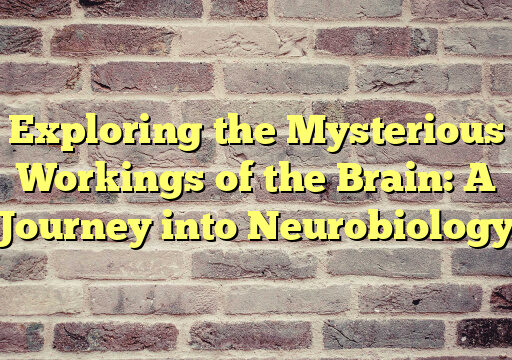Memory is a fascinating aspect of human cognition that allows us to store, retain, and recall information. The ability to remember past experiences, facts, and skills is crucial for our everyday functioning. In this article, we will explore the science behind memory and how your brain learns and retains information.
Types of Memory
There are different types of memory that play a role in how we learn and retain information:
- Short-term memory: Also known as working memory, this type of memory stores information temporarily for immediate use.
- Long-term memory: This type of memory stores information for a longer period of time and can be retrieved when needed.
- Procedural memory: This type of memory stores knowledge of how to perform tasks or skills, such as riding a bike or playing a musical instrument.
- Declarative memory: This type of memory stores facts and information that can be consciously recalled, such as historical dates or vocabulary words.
How Your Brain Learns and Retains Information
When you learn something new, your brain goes through a process called encoding, where the information is converted into a form that can be stored in memory. This process involves creating connections between neurons in the brain, which strengthen over time with repeated exposure to the information.
Consolidation is another important process in memory formation, where the newly learned information is transferred from short-term memory to long-term memory. This process involves replaying and reinforcing the memory traces in the brain, making them more stable and less prone to decay.
Retrieval is the final step in the memory process, where you access the stored information when needed. This process can be influenced by various factors, such as context cues, emotional state, and the passage of time.
Factors Affecting Memory
There are several factors that can affect how your brain learns and retains information:
- Attention: Paying attention to the information you are trying to learn is crucial for memory formation.
- Repetition: Repeated exposure to the information can help strengthen the memory traces in the brain.
- Emotion: Emotional experiences are often better remembered than neutral ones, due to the involvement of the amygdala in memory formation.
- Sleep: Getting an adequate amount of sleep is important for memory consolidation, as the brain processes and stores information during sleep.
Conclusion
Memory is a complex and fascinating aspect of human cognition that plays a crucial role in our everyday functioning. By understanding the science behind memory and how your brain learns and retains information, you can improve your learning and memory skills. Paying attention, repetition, emotional engagement, and adequate sleep are all important factors in enhancing memory formation and retention. So next time you are trying to learn something new, remember to activate your brain's memory systems and give yourself the best chance of remembering it in the future.
FAQs
Q: How can I improve my memory?
A: You can improve your memory by paying attention to the information you are trying to learn, repeating it over time, engaging emotionally with the material, and getting an adequate amount of sleep.
Q: Why do we forget things?
A: Forgetting can occur due to factors such as interference from other memories, lack of attention during encoding, or decay of memory traces over time.
Q: How does aging affect memory?
A: Aging can affect memory by slowing down cognitive processes, reducing the efficiency of memory consolidation, and increasing susceptibility to memory disorders such as dementia.
Unlock Your Mental Potential




